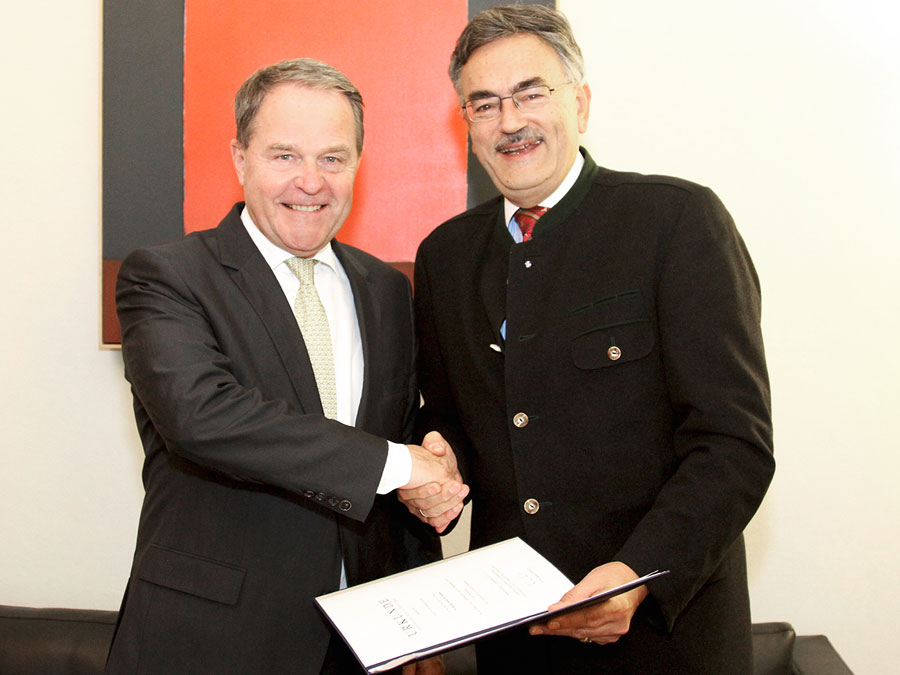TUM gains momentum on the reform path
Wolfgang A. Herrmann starts fifth term as president

Chemist Prof. Wolfgang A. Herrmann (65) has been appointed president for the next six years. He has outlined the following key goals for his fifth term:
- Implement the new recruitment and career development model TUM Faculty Tenure Track, including the appointment of 100 new professors as a key step towards strengthening TUM’s status as one of the world’s top international universities.
- Create independent scholarship programs for international postdoctoral candidates and visiting professors.
- Increase the TUM University Foundation’s capital assets to EUR 100 million.
- Extend TUM’s reach to strategic locations across the globe along the same lines as TUM Asia and TUM CREATE in Singapore.
Herrmann aims to transition the TUM from a traditional faculty organization to a matrix structure with integrative, interdisciplinary research centers (focusing, for example, on issues such as energy, water and medical technology). He also plans to fully develop and drive the TUM School of Education reform model to build a modern center of teacher training complemented by the university’s own secondary school (TUM-Gymnasium). The Munich Center for Technology in Society (MCTS) will be managing the integration of technology-focused human and social sciences at TUM.
Fostering an united university community
Wolfgang A. Herrmann is the longest-serving President of a German university. The highlights of his term of office include TUM’s recognition as a “University of Excellence” in 2006 and 2012. The TUM has again been named Germany’s number one university in the Shanghai Ranking 2013 (Academic Ranking of World Universities, ARWU) for the third consecutive time. A number of key reforms that Herrmann has initiated since 1995 have become important benchmarks among policy-makers in Germany’s academic community. Herrmann has received many awards, including the titles “President of the Year” (German Association of University Professors and Lecturers, 2012) and “University Manager of the Year” (Center for Higher Education / Financial Times Deutschland, 2009).
“My job as President is to ensure that we fully develop the diversity of talent we have at our fingertips,” Herrmann declared. “This calls for efficient structures and an empowered management team, but also for a strong and united university community. From admin staff to freshmen and from top professors to alumni, we want to foster an enduring TUM identity that spans every generation and every culture.”
More information:
TUM Board of Management